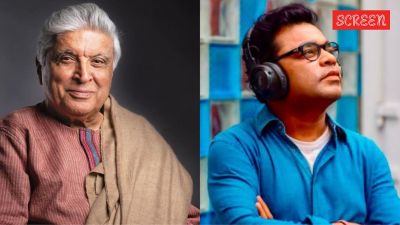Why do we kid ourselves?
As school-leaving exams end, one set of participants has already failed: the parents

You have to be a parent, I guess, to understand what 17-year-old Gurjeet Singh Bagga8217;s parents felt when he hanged himself two weeks ago. A fun-loving kid at Delhi8217;s Modern School, full of beans, at the threshold of life. Then, one day before the Class XII exams, he decides to snuff it out. Just like that. A full stop before a sentence.
The exam season more or less ended yesterday. But no one8217;s answered the real questions. Gurjeet could have been your child, or the kid next door. Yet not a single one of us parents so much as shed a tear. Because Gurjeet, for us, is not a child at all. He8217;s a statistic, just another of the hundreds in this country who prefer the finality of death to the humiliation of failure, year after year. That makes it easier somehow, makes us feel less culpable for endorsing a system that can kill our kids.
Because endorse it we certainly do. Come March, and the entire nation is in the grip of exam fever. Anxious mummies and daddies apply for mass leave and put their lives on hold to provide their kids moral support. Memory pills are devoured, psychiatrists and suicide helplines are on red alert, nutritionists are consulted for the best brain food, yoga and reiki experts are besieged, and respected national dailies devote entire pages to tips on tackling diagrams and coping with pre-test blues.
Among the more perspicacious recommendations: put your favourite fragrance on a handkerchief and sniff it every time you 8216;8216;blank out8217;8217;. Wear a peridot for mental alertness or a tourmaline for tranquillity. Avoid red, the colour of Mars, and black, the colour of Saturn, unless you want to feel hyper or dull. And, oh yes, those with a combination of Ketu-Moon in the sixth house should never drink milk the night before a paper.
As for the exams themselves, these would make a high-security court trial look clumsy. Closed circuit cameras, flying and 8216;8216;sitting8217;8217; squads, extra vigilance at photocopy centres, and special police control rooms, all to prevent desperate teenagers from resorting to cheating, bribing officials for exam papers, even hiring impersonators, to make the cut.
Sounds insane? No wonder our kids are getting unhinged. Last year, a study on anxiety among 231 senior schoolchildren by Dr Anuradha Sovani, clinical psychologist and reader at Mumbai University, revealed that kids are more scared of exams than accidents, earthquakes and bomb attacks! And a survey by the Institute of Mental Health and Behavioural Science in Delhi found that 72 per cent of board exam candidates were acutely anxious. While public examinations are universally stressful, in India they have all the makings of a black farce.
We can transfer the blame, of course. Blame a system that has turned education into a cutthroat bazaar, where demand hopelessly outstrips supply, and lakhs compete for a handful of college seats. Blame schools for catering ruthlessly to this skewed graph by slave-driving students to achieve their own targets and outperform other institutions. Blame an educational approach that has reduced our children to mindless parrots, and the vastness of human knowledge to the ignominy of percentages and aggregates.
But8212;and this is a but that requires honest reflection8212;as parents, are we really victims of the 8216;8216;system8217;8217;? I think not. Rather, we are victims of the belief that a marksheet is our child8217;s only passport to the future, a belief that has somehow been ingrained into our collective consciousness by a middle-class sense of insecurity. Like it or not, the public exam is still largely seen as the springboard to a secure, stolid career. Ask any IIM or IIT graduate with a six-digit salary to match his single-digit aggregate.
And yet, never before has the window of opportunity been so widely open for those who don8217;t quite make the mark. With the economy expanding by leaps and bounds, today our children have the chance to opt for careers in media, design and scores of other professions that demand creativity and skill, rather than marks and academic prowess. No one really wants to check if a fashion designer got a first in high school, or a photographer only made it to pass class, as long as they deliver the goods.
Why, then, do we still cling obsessively to the IIM/IIT dream? To put it bluntly: greed. No matter how skilled, an interior decorator hardly starts out with a monthly salary that is more than his middle-aged father8217;s annual income. Also, though other careers provide a decent living, they come with no guarantees and the rewards are chancy. Make no mistake, when it comes to the crunch, we parents are just as mercenary as the 8216;8216;system8217;8217; we gripe about.
The tragedy is that both insecurity and greed are all too easy to project, especially on impressionable 16-year-olds eager to please their folks. Too many of us live vicariously through our children, so exams inevitably tend to become something of a personal test. We forget that wanting our kids to succeed, and wanting to succeed through our kids are two very different things.
That8217;s why we think nothing of making our children slave away three-fourths of their waking hours for one infernal exam. Child labour? Not if you subscribe to the middle-class work ethic of no pain, no gain. Besides, we assume we have the right to demand that 94 per cent as a fair dividend on our investment in Junior8217;s instruction. But unfortunately for our kids, the payback is often far too high.
Of course, parents are only human. And sure, the system stinks. But instead of just bleating about how unfair it is, we need to be more proactive, petition authorities, move the courts to make education less stressful. Because ultimately, as parents, we, and only we, can free our kids from this unconscionable tyranny, by re-examining our own attitudes. Lets start by putting an exam in its proper perspective as an assessment tool rather than a meal ticket. And taking personal responsibility for kids like Gurjeet Bagga. If we don8217;t, we are guilty of subscribing to the belief that our children8217;s achievements are more important than their lives.
- 01
- 02
- 03
- 04
- 05































